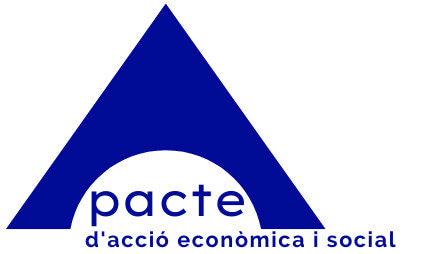- Forging Ahead: Nigeria’s latest news showcases remarkable economic shifts, burgeoning tech advancements, and strengthened global collaborations poised to redefine its future.
- Economic Resurgence and Diversification
- The Rise of Nigeria’s Tech Ecosystem
- Fintech Innovations and Financial Inclusion
- Strengthening Global Collaborations
- Infrastructure Development and Investment
- Looking Ahead: Challenges and Opportunities
Forging Ahead: Nigeria’s latest news showcases remarkable economic shifts, burgeoning tech advancements, and strengthened global collaborations poised to redefine its future.
Nigeria is undergoing a period of significant transformation, and the latest news reflects a dynamic shift in its economic landscape, technological advancements, and international relations. From burgeoning fintech startups to ambitious infrastructure projects, the nation is actively carving a path towards a more prosperous and interconnected future. These developments are attracting global attention and positioning Nigeria as a key player on the African continent and beyond.
This period of change isn't without its challenges, but the resilience and innovative spirit of the Nigerian people are driving forces behind its progress. These shifts are not merely isolated incidents; they’re indicative of a more profound systemic overhaul taking place within the country, promising a future fueled by growth and opportunity.
Economic Resurgence and Diversification
Nigeria's economy, historically reliant on oil, is actively diversifying into sectors like agriculture, manufacturing, and technology. Recent reports indicate a steady increase in non-oil exports, particularly in agricultural products, demonstrating a successful move towards reducing dependence on a single commodity. Government initiatives aimed at improving the business environment and attracting foreign investment, alongside increased private sector participation, are contributing to this positive trend. This progress is crucial for long-term economic stability and sustainable growth.
Furthermore, efforts to streamline regulatory processes and promote public-private partnerships are creating a more favorable climate for both domestic and international businesses. This diversification not only mitigates economic risks associated with fluctuating oil prices but also generates new employment opportunities and stimulates broad-based economic growth across the nation.
| Agriculture | 4.5% | 22.3% |
| Manufacturing | 3.8% | 16.7% |
| Services | 5.1% | 53.2% |
| Oil & Gas | -1.2% | 7.8% |
The Rise of Nigeria’s Tech Ecosystem
Nigeria's tech sector is experiencing exponential growth, fueled by a young, dynamic population and increasing access to internet connectivity. Lagos, in particular, has emerged as a major hub for tech startups, attracting significant investment from both local and international venture capitalists. Fintech companies are leading the charge, revolutionizing financial inclusion and providing innovative solutions to address the needs of the unbanked population.
The government is actively promoting the tech ecosystem through initiatives such as tax breaks for startups, the establishment of innovation hubs, and investments in digital infrastructure. This support is fostering a vibrant entrepreneurial ecosystem and encouraging the development of groundbreaking technologies. This digital transformation is reshaping the Nigerian economy and creating new opportunities for growth and innovation.
- Increased access to venture capital
- Growing number of tech hubs and co-working spaces
- Highly skilled and youthful workforce
- Favorable government policies
- Rising adoption of mobile technology
Fintech Innovations and Financial Inclusion
The fintech sector in Nigeria is truly transformative, tackling financial inclusion challenges head-on. Companies are leveraging mobile technology to deliver financial services to previously underserved populations, offering access to loans, savings accounts, and insurance products. This is particularly impactful in rural areas where traditional banking infrastructure is limited. The rapid adoption of mobile money and digital payment systems is driving economic activity and empowering individuals across the country. The proliferation of payment platforms and mobile banking solutions is not only simplifying transactions but also fostering greater transparency and accountability within the financial system.
Furthermore, fintech innovations like peer-to-peer lending and crowdfunding are disrupting traditional financial models and providing alternative funding sources for small businesses and entrepreneurs. These technologies are fostering a more inclusive and dynamic financial landscape, enabling greater economic participation for all Nigerians. This surge in fintech activity is also creating a demand for skilled professionals in areas such as software development, data analytics, and cybersecurity.
The regulatory landscape is adapting to these changes, with the Central Bank of Nigeria actively working to create a framework that fosters innovation while protecting consumers and ensuring financial stability. It’s a delicate balancing act, requiring ongoing collaboration between regulators, fintech companies, and other stakeholders.
Strengthening Global Collaborations
Nigeria is actively strengthening its global collaborations, forging partnerships with countries and organizations around the world to drive economic growth and development. These collaborations encompass trade, investment, technology transfer, and security cooperation, reflecting Nigeria's growing role as a regional and global leader. Bilateral agreements are being negotiated and implemented to facilitate trade and attract foreign direct investment.
The government is also actively engaging with international organizations such as the World Bank, the International Monetary Fund, and the United Nations to access financial assistance and technical expertise. Maintaining strong diplomatic ties and participating in international forums are critical for promoting Nigeria's interests and addressing global challenges.
- Strengthening trade relations with key partners
- Attracting foreign direct investment in key sectors
- Promoting technology transfer and innovation
- Enhancing security cooperation to address regional challenges
- Increasing participation in international forums and organizations
Infrastructure Development and Investment
Recognizing the crucial role of infrastructure in economic development, Nigeria is embarking on ambitious infrastructure projects across various sectors. These include the construction of new roads, railways, ports, and power plants, as well as the modernization of existing infrastructure. These improvements are vital for enhancing connectivity, reducing transportation costs, and attracting investment. These projects are not simply about physical structures; they are about laying the foundation for a more efficient and competitive economy.
Significant progress is being made in railway modernization, with the Lagos-Ibadan railway line now operational and plans underway for further expansion of the network. Investment in power infrastructure is also underway to address the persistent electricity supply challenges. The government is actively seeking private sector participation in infrastructure development through public-private partnership models, leveraging private capital and expertise. These strategic infrastructure investments are poised to unlock significant economic potential and improve the quality of life for millions of Nigerians.
These projects are, however, facing hurdles. Land acquisition, environmental concerns, and financing challenges remain obstacles to their timely completion. Navigating these challenges requires effective planning, transparent procurement processes, and strong stakeholder engagement.
| Lagos-Ibadan Railway | $2 Billion | Operational |
| Abuja-Kaduna-Kano Railway | $5.3 Billion | Under Construction |
| Second Niger Bridge | $3.8 Billion | Nearly Complete |
Looking Ahead: Challenges and Opportunities
Nigeria's journey towards greater economic prosperity and global integration is not without its obstacles. Challenges such as insecurity, corruption, and infrastructure deficits remain significant concerns. However, the government is actively addressing these issues through a combination of policy reforms, law enforcement, and community engagement. Addressing these issues will be crucial to creating a more stable and conducive environment for investment and sustainable development.
Despite these hurdles, Nigeria's future looks bright. The nation's youthful population, abundant natural resources, and growing entrepreneurial spirit present a wealth of opportunities. By continuing to embrace innovation, strengthen global collaborations, and invest in its people, Nigeria is poised to become a leading economic and technological power on the African continent and a valuable partner on the world stage.






